What Is AWS ECS (Elastic Container Service)?
4.8 out of 5 based on 8745 votesLast updated on 24th Sep 2024 15.6K Views
- Bookmark

Explore AWS Elastic Container Service (ECS) for scalable container management, simplifying deployment and orchestration on AWS.
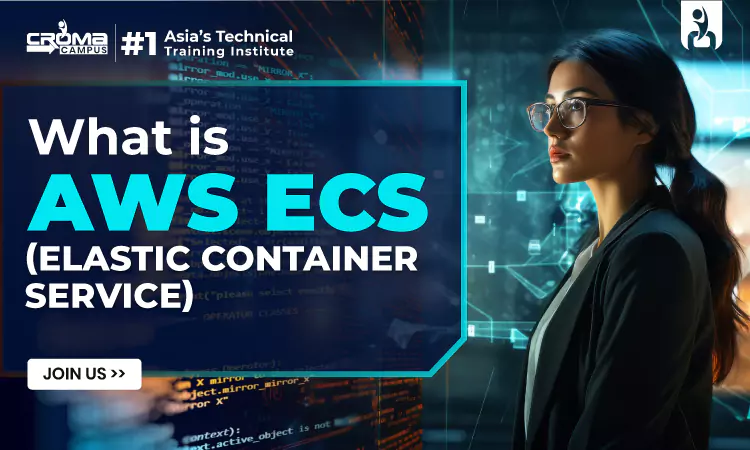
Introduction
AWS Elastic Container Service (ECS) is a fully managed container orchestration service that enables you to run, manage, and scale Docker containers effortlessly. Designed for flexibility, ECS supports two main deployment models: EC2 for managing your infrastructure and Fargate for a serverless experience. It integrates seamlessly with other AWS services such as IAM, CloudWatch, and Elastic Load Balancing, providing a secure and scalable platform for containerized applications. ECS is ideal for deploying microservices, web applications, and batch jobs, offering an efficient solution for businesses to run containers without the complexity of managing the underlying infrastructure. One can join the AWS Online Training for the best skill development in this field.
An Insight Into AWS
AWS (Amazon Web Services) is a comprehensive AWS Cloud Computing Course platform provided by Amazon. It offers a wide range of services including computing power, storage, and databases, along with tools for networking, machine learning, and analytics. AWS operates on a pay-as-you-go model, allowing businesses to scale resources based on demand without upfront costs.
Popular services include EC2 for scalable computing, S3 for storage, RDS for managed databases, and Lambda for serverless computing. AWS’s global infrastructure is spread across various regions, ensuring high availability and low latency for applications.
Industries use AWS for its flexibility, security, and extensive ecosystem. It’s popular among startups for cost savings, and large enterprises like Netflix and Airbnb leverage it for performance and scalability.
AWS certifications are in high demand, offering roles like Cloud Architect, DevOps Engineer, and Solutions Architect with attractive salaries, especially in cloud-driven markets like India.
What Is AWS ECS (Elastic Container Service)?
AWS ECS (Elastic Container Service) is a fully managed container orchestration service provided by Amazon Web Services. It allows you to run, manage, and scale Docker containers in a cluster of virtual machines (EC2 instances) or a serverless environment using AWS Fargate. ECS simplifies the deployment of containerized applications without needing to manage the underlying infrastructure.
There are two main launch types in ECS:
- EC2 Launch Type: You run containers on a cluster of EC2 instances that you manage. ECS takes care of placing containers on these instances based on your specified resource requirements, ensuring optimized utilization of your infrastructure.
- Fargate Launch Type: Fargate allows you to run containers without managing servers. You don’t need to provision or manage EC2 instances; AWS handles the infrastructure, scaling the containers as needed.
ECS integrates with many AWS services like IAM for security, CloudWatch for monitoring, and Elastic Load Balancing for traffic distribution. It's ideal for microservices, web applications, and batch jobs.
ECS's serverless and scalable nature makes it highly efficient for deploying applications quickly, reducing the complexity of managing infrastructure, and offering seamless integration with other AWS services. The Cloud Computing Course Online is affordable and offers top-notch training and opportunities for aspiring professionals.
Also Read These Posts:
AWS Cloud Practitioner Exam Questions
Key Features And Benefits
AWS ECS (Elastic Container Service) offers several key features and benefits, making it a popular choice for containerized applications:
Key Features
- Managed Orchestration: ECS manages the deployment, scaling, and management of containerized applications, reducing the complexity of managing clusters manually.
- Flexible Launch Options: It supports both EC2 (self-managed) and Fargate (serverless) launch types, providing flexibility based on your infrastructure management preferences.
- Deep Integration with AWS: ECS integrates with AWS services such as IAM for security, VPC for networking, CloudWatch for logging and monitoring, and Elastic Load Balancing for traffic distribution.
- Auto Scaling: It automatically adjusts the number of tasks based on resource demands, ensuring cost efficiency and performance.
- Security: ECS offers task-level IAM roles, allowing fine-grained control over the permissions and security of containers.
- Service Discovery: ECS allows easy service discovery using AWS Cloud Map, ensuring containers within a cluster can find and communicate with each other seamlessly.
Benefits
- Reduced Management Overhead: With Fargate, there’s no need to manage or scale the underlying infrastructure, leading to faster deployments.
- Cost-Efficient: You only pay for the resources you use, and the automatic scaling ensures optimal resource utilization.
- Highly Scalable: ECS can handle applications at any scale, from small microservices to large, distributed systems.
Also, For more information visit here: Microsoft Azure Course Online
How Does AWS ECS Function?
AWS ECS (Elastic Container Service) functions as a fully managed orchestration service that enables you to run and scale containerized applications using Docker containers.
Here’s a breakdown of how it works:
1. Clusters
ECS operates on the concept of clusters, which are logical groupings of EC2 instances or Fargate tasks. Each cluster acts as the environment where your containers run. You can run multiple applications on a single cluster by managing containers within services. Refer to the AWS Online Training to learn more.
2. Task Definitions
To run a containerized application, you create a task definition, which acts as a blueprint. It defines various configurations such as:
- Container image: Specifies the Docker image to be used.
- CPU and memory: Defines resource allocation for each container.
- Networking and security: Configures VPC, subnets, and security groups.
- Logging: Specifies where logs should be sent, usually to AWS CloudWatch.
3. Task Execution
A task represents the running instance of a task definition. ECS places tasks within a cluster based on your specified launch type:
- EC2 Launch Type: In this mode, containers run on a cluster of EC2 instances that you manage. ECS schedules the tasks, ensuring optimized resource usage across the instances.
- Fargate Launch Type: Here, AWS abstracts the underlying infrastructure, and you don't manage any EC2 instances. ECS handles resource provisioning and task execution without needing to manage servers.
4. Service
ECS services allow you to run and maintain a specified number of tasks simultaneously. This is useful for long-running applications like web servers. Services also support load balancing, so traffic is evenly distributed across tasks.
5. Scaling and Monitoring
ECS integrates with Auto Scaling, adjusting the number of running tasks based on predefined policies. ECS also integrates with AWS CloudWatch for monitoring metrics and application performance.
6. Networking
ECS tasks can be configured with AWS VPC networking, ensuring secure communication within and across services.
Overall, AWS ECS simplifies deploying, managing, and scaling containers in a cloud environment, whether managing infrastructure manually with EC2 or going serverless with Fargate. Consider checking the AWS Certification Cost and joining a training program for maximum skill development.
Conclusion
In summary, AWS ECS (Elastic Container Service) is a powerful, fully managed container orchestration solution that simplifies running and scaling Docker containers. It offers flexibility with EC2 for self-managed infrastructure and Fargate for serverless deployment, catering to a wide range of applications. With features like deep AWS integration, auto-scaling, secure networking, and efficient resource utilization, ECS reduces infrastructure management complexity while providing robust scalability. Whether deploying microservices, batch processing, or web applications, ECS ensures optimal performance and cost efficiency, making it an ideal choice for businesses looking to streamline their containerized application workflows.
FAQs
1. What is AWS ECS used for?
AWS ECS is used to run and manage Docker containers in the cloud. It provides a highly scalable platform for deploying containerized applications, such as microservices, web applications, and batch jobs, without worrying about managing the underlying infrastructure.
2. What are the launch types in AWS ECS?
AWS ECS supports two launch types: EC2 and Fargate. EC2 requires managing your own virtual machines for hosting containers, while Fargate is a serverless option where AWS automatically provisions and manages the infrastructure for running containers.
3. How does AWS ECS integrate with other AWS services?
AWS ECS integrates with services like IAM for security, CloudWatch for monitoring, Elastic Load Balancing for traffic management, and VPC for networking. This ensures that containers are secure, well-monitored, and can easily communicate with each other and external services.
4. How does scaling work in AWS ECS?
ECS supports Auto Scaling, which adjusts the number of running containers (tasks) based on defined thresholds such as CPU and memory usage. This helps maintain optimal performance during varying traffic loads, ensuring cost-efficient use of resources.
5. What is the difference between ECS and EKS?
ECS is Amazon’s native container orchestration service designed for running Docker containers, whereas EKS is Amazon’s managed Kubernetes service. EKS allows users to deploy Kubernetes clusters, while ECS offers a more straightforward, AWS-centric orchestration solution.
Subscribe For Free Demo
Free Demo for Corporate & Online Trainings.
Your email address will not be published. Required fields are marked *
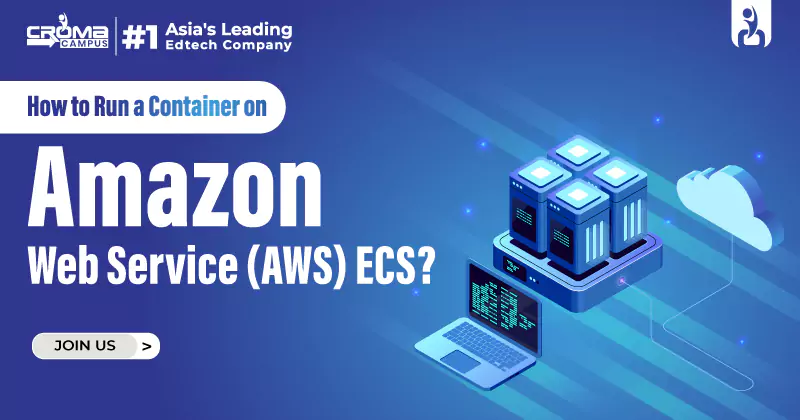



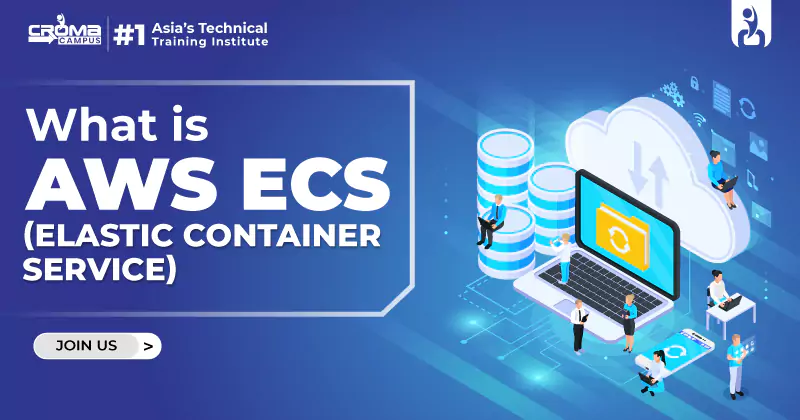


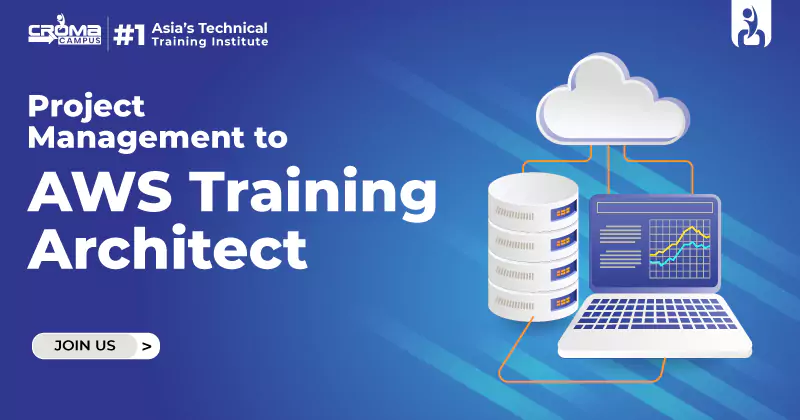

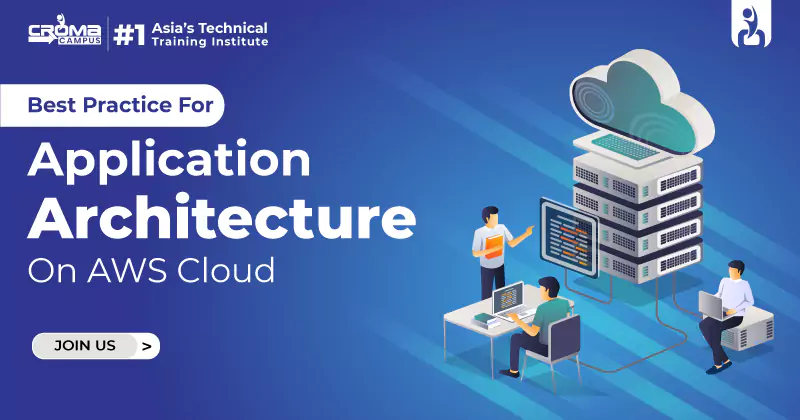











 Master in Cloud Computing Training
Master in Cloud Computing Training